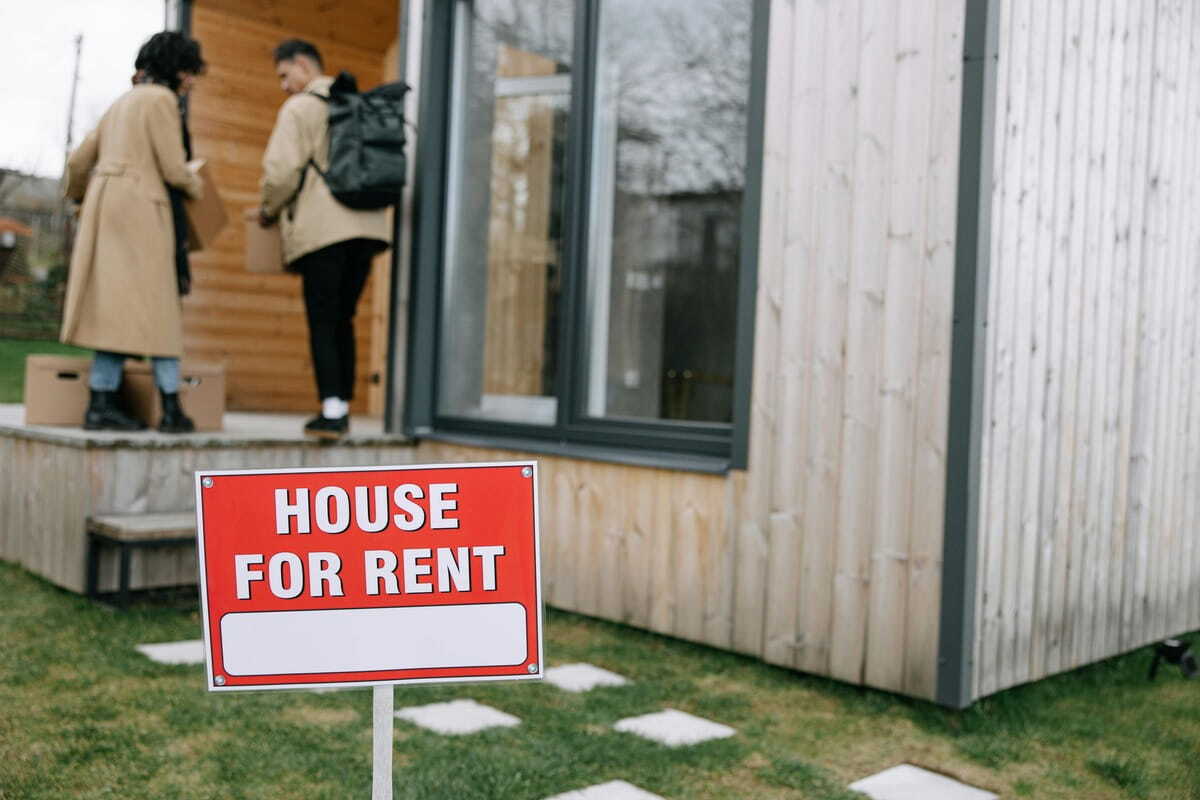Days
Hours
Minutes
Seconds
May 1 2026 - Renters' Right Act Commencement Day
You have 0 days to:
Serve any final Section 21 notices
Stop accepting above-asking rent offers
Prepare for the rental bidding ban
Remove “No DSS” from adverts
Remove “No Children” from listings
Show one clear rent price
Stop using fixed-term agreements
Switch to periodic tenancy templates
Check which tenancies go periodic
Stop taking rent before signing
Take no more than one month’s rent
Move all evictions to Section 8
Train staff on new notice rules
Create Section 13 process flow
Add two months to rent reviews
File court claims for Section 21s
Update landlord move-in grounds
Update landlord selling grounds
Send the RRA Information Sheet
Create written terms where missing
Update How to Rent processes
Review tenant screening questions
Update pet request processes
Stop backdating rent increases
Discuss rent protection backbooks
Act now before it is too late...
The one thing agents can't ignore about the new PRS Ombudsman
The Renters' Rights Act will introduce a new Private Rented Sector Ombudsman. While joining will be compulsory for landlords, agents also need to stay vigilant.
Emily Popple
Jan 15, 2026
Originally published: April 2024
First proposed in the Renters (Reform) Bill, the Labour Government is moving forward with plans to establish a new national landlord ombudsman.
It’s a key part of the Renters’ Rights Act, which represents their commitment to raising the bar for tenants and cracking down on rogue landlords.
Once in force, all private landlords, regardless of whether they manage properties themselves or through an agent, will be legally required to register with the Private Rented Sector Ombudsman scheme.
Those who fail to join may face penalties of up to £7,000 for initial breaches, rising to £40,000 or even criminal prosecution for continued breaches.
But it isn’t just landlords who’ll be in hot water.
While agents don’t have to join the Ombudsman, you’re subject to the same fines if you fail to ensure your clients are registered.
In this blog, I’ll cover everything you need to know. Let’s get started.
- What is an ombudsman?
- Why is the Government introducing a PRS ombudsman?
- What are the implications for landlords?
- What are the implications for letting agents?
- How will the new Private Rented Sector Ombudsman work?
- When will the PRS Ombudsman service start?
- Which organisation will take on the role of the new PRS Ombudsman?
- Conclusion
- FAQs
What is an ombudsman?
An ombudsman is an independent body established to resolve disputes between consumers and service providers without court involvement. Often referred to as a redress scheme, an ombudsman provides fair, impartial, and legally binding decisions and remedial action when complaints arise, typically at no cost to the consumer.
Ombudsmen exist across many sectors to protect consumer rights and reduce the strain on the court system (more on this later). Now, the new Private Rented Sector Ombudsman will extend this model to the private rented sector.
For tenants, this means they can make complaints about their landlord in a supportive, low-pressure environment. For landlords and agents, it’s a way to handle the complaints procedure before they become a legal headache.
According to the Private Rented Sector Ombudsman guidance, the body will offer “quick, fair, impartial and binding resolution for tenants’ complaints about their landlord.”
Exactly how quickly remains to be seen.
Why is the Government introducing a PRS Ombudsman?
Currently, private tenants can make complaints via two redress schemes:
- The Property Ombudsman (TPO) - an independent, not-for-profit organisation
- The Property Redress Scheme - a government-authorised consumer redress scheme
However, they can only use these to complain about letting agents, not landlords. This raises a couple of issues.
Firstly, according to the 2025 State of the Lettings Industry report, 43% of landlords reported that they didn’t use a letting agent. This makes it challenging for the tenants they serve to make complaints without pursuing legal action.
Secondly, 57% of landlords who work with an agent may refuse the agent's requests on behalf of the tenant. This puts agents in a tricky spot and makes it difficult to find a resolution for the tenant.
The new Private Rented Sector Ombudsman will close that gap. By introducing an overarching infrastructure to handle housing complaints and resolutions for tenants, the Government believes it will:
- Standardise the experiences of private and social housing tenants
- Dramatically reduce the load on the court system
The second point here is critical. Many in the sector believe that the Government will overload the courts by removing Section 21 without reform. At its core, the scheme is designed to provide a consistent, accessible dispute-resolution route for tenants without resorting to legal action.
Introducing the Private Rented Sector Ombudsman, while retaining the existing ombudsmen, will help to resolve more issues out of court and reduce this load.
While strategies like this should be praised, the jury is still out on how effective they’ll be.
What are the implications for landlords?
The introduction of the PRS Ombudsman marks a significant shift in how landlord-tenant disputes are handled. For the first time, landlords will be subject to binding decisions if a tenant lodges a complaint, and these decisions can be enforced by the courts. Ignore the rules, and the consequences could be serious.
Unsurprisingly, landlords remain very sceptical. According to The State of The Lettings Industry report 2025, 77% of landlords are either somewhat or very pessimistic about the private rented sector reforms.
What if a landlord doesn’t join the PRS Ombudsman?
Once the scheme becomes mandatory, all private landlords will be legally required to register, whether they self-manage the property or appoint a managing agent. Failing to do so could lead to a civil penalty of up to £7,000. Repeat offenders could face fines of up to £40,000 or even criminal prosecution.
And it’s not just the landlord who could be in trouble. If a letting agent markets a property for a landlord who hasn’t joined the scheme, you could face the same penalties.
What penalties could landlords face if they ignore an PRS Ombudsman’s decision?
If a landlord fails to comply with a decision made by the Private Renters’ Ombudsman, the consequences can be serious, particularly in cases of repeated or wilful non-compliance. They may be:
- Expelled from the Ombudsman scheme, preventing them from legally renting properties.
- Pursued through the courts, allowing the ombudsman’s rulings to be enacted.
- Served a Rent Repayment Order (RRO), which allows tenants to claim up to two years’ rent.
In its Guide to the Renters' Rights Act, the Government states that it’s doubling RROs from 12 to 24 months to increase “the deterrent effect of rent repayment orders and making them more appealing for tenants and local authorities to pursue.”
Can landlords complain to the PRS Ombudsman about their tenants?
No, the Private Renters’ Ombudsman is specifically designed to protect tenant rights, and only tenants can bring complaints under the scheme. It would be inappropriate for landlords to seek binding decisions about tenant behaviour through this service.
That said, the Government has recognised that landlords may also need support. Discussions for alternative mediation options to help landlords resolve issues with tenants without resorting to court are ongoing, but nothing has been finalised.
Will there be any membership fees to join?
Yes, landlords will need to pay an annual fee to join the Ombudsman. This fee will be set by the Ombudsman service itself and is intended to cover the cost of running the scheme. The Government has said it’ll aim to keep the fee proportionate, acknowledging the rising fees that landlords have to contend with. However, it’s still compulsory for landlords to join.
“I assure the House that we are committed to ensuring that landlords who choose to leave the sector can exit the Ombudsman scheme as quickly as possible; this is not a ‘Hotel California’ Ombudsman where you can check out but never leave." - Baroness Taylor of Stevenage, Parliamentary Under-Secretary of State for Housing and Local Government
Do former landlords need to retain their membership even after they stop letting properties?
In the committee stage of the Renters’ Rights Act, Baroness Taylor of Stevenage, said:
“As part of the implementation process, we will work with stakeholders to ensure that the period of time for which former landlords are required to remain members of the scheme is appropriate and proportionate.
“However, this needs to be balanced with giving tenants sufficient time for issues to come to light and for them to escalate complaints after their tenancy has ended.”
What are the implications for letting agents?
Currently, agents often end up stuck in the middle of individual disputes, trying to resolve tenant complaints even when the landlord isn’t cooperating. That’s because there’s no formal redress scheme for landlords, only for agents.
With the new Ombudsman in place, that burden will be shared. Landlords will have to register, no matter how they manage their properties. That means they’ll be directly accountable, making it easier to support tenants without taking on more than your fair share of responsibility.
According to The State of The Lettings Industry Report 2025, nearly one in three (28%) of agents feel positive towards the new PRS Ombudsman, suggesting many see value in having a clearer, more formal route for resolving landlord–tenant disputes.
5 ways to prepare for implementation
- Keep landlords informed - Ensure that your landlords know that registration with the Ombudsman will be mandatory.
- Review landlord relationships - Take a look at how much responsibility you’re currently taking on. The new scheme could be an opportunity to reset boundaries and ensure that landlords fulfil their responsibilities.
- Sharpen your processes - Have clear procedures in place for handling complaints, so nothing falls through the cracks and everyone knows where they stand.
- Offer extra support - For landlords who find compliance overwhelming, position yourself as the go-to expert to help them stay on top of the changes.
- Stay updated - Follow developments on the Renters’ Rights Act to avoid being caught off guard by new obligations.
How will the new Private Rented Sector Ombudsman work?
The Ombudsman will operate as an independent service designed to help private tenants sort out issues with their landlord without going to court, just as social housing residents can.
It’ll look at complaints covering every stage of the renting process, from how the property was advertised, to problems during the tenancy, and even after the tenant has moved out.
According to the Government’s official guidance, tenants can raise complaints online or by telephone, with extra support available for vulnerable renters.
The Ombudsman will be responsible for investigating complaints impartially and holding landlords accountable when they fail to act professionally or reasonably.
However, we still lack clarity on whether offline complaints will be recorded online. This would make sense in the spirit of the Government’s broader efforts to digitise and enhance transparency.
What powers will the PRS Ombudsman have?
If the Ombudsman upholds a complaint, it’llhave the authority to issue binding decisions that landlords must comply with. These powers are expected to include the ability to:
- Require a landlord to take specific action or stop a particular practice
- Order a landlord to issue an apology or explanation
- Award compensation to tenants where appropriate
- Require landlords to improve complaint-handling processes
In practice, landlords will be expected to follow a clear complaint-handling code that sets out how complaints are acknowledged, investigated and resolved before escalation.
Landlords who are members of the Ombudsman scheme will be legally required to follow its decisions. Failure to do so could lead to enforcement action or court involvement.
What will tenants be able to complain about to the PRS Ombudsman service?
Under the new scheme, tenants will be able to raise complaints about anything a landlord has done or failed to do that’s caused them harm, stress, or inconvenience. Rather than setting out a rigid list in law, the Renters’ Rights Act gives the Ombudsman discretion to look at each case on its merits and decide what’sfair and reasonable.
That said, complaints are likely to focus on a number of common issues, including:
- Failure to carry out repairs or maintenance, or unreasonable delays in doing so
- Poor property conditions, including issues linked to damp and mould, safety hazards or disrepair
- Inadequate communication, such as ignoring tenant enquiries or complaints
- Failure to address previous complaints or follow a fair complaints process
- Unreasonable behaviour during a tenancy, including how issues are handled day to day
- Problems at the start of a tenancy, such as misleading property information or poor handover
- Issues at the end of a tenancy, including deposit protection, deductions or disputed move-out charges
This is particularly relevant in light of Awaab’s Law, which has placed greater emphasis on timely responses to serious health and safety risks in rented homes.
By allowing this flexibility, the Ombudsman is intended to give tenants a clear and accessible route to raise concerns, while ensuring decisions take account of the individual circumstances of each case.
When will the PRS Ombudsman service start?
The Renters’ Rights Act 2025 has completed its passage through Parliament and received Royal Assent, and the Government has confirmed that the reforms won’t all land at once. Instead, the measures in the Act will be introduced in phases to give landlords, agents and local authorities time to prepare.
While Phase 1 of the RRA will take effect from May 1, 2026, the Private Rented Sector Landlord Ombudsman will be brought in during Phase 2, which is expected to begin in late 2026.
Before the Ombudsman goes live, the Government will first roll out a new PRS Database. From late 2026, all private landlords will be required to register on this database and pay an annual fee (to be confirmed closer to launch). With landlord registration underway, the next step will be the formal introduction of the PRS Landlord Ombudsman.
The Ombudsman service itself will be developed in stages, starting with the appointment of a scheme administrator and followed by mandatory landlord membership. While exact dates will be confirmed closer to launch, the Government currently expects mandatory Ombudsman membership to come into force in 2028, once it is confident the service is fully ready.
Which organisation will take on the role of the new PRS Ombudsman?
During the committee stage of the House of Lords, Baroness Taylor said:
“As we have said before, the Government’s preference is for the Housing Ombudsman Scheme to deliver private landlord redress. While not a final decision, if this is the case, we anticipate that appointment of the responsible individual will mirror the public appointment process for the existing Housing Ombudsman in the social rented sector.”
This aligns with the Government’s efforts to standardise tenant experiences in both the social and private rented sectors.
However, it’s worth noting that there was a 474% increase in complaints about property standards and substandard living conditions between 2019 and 2025. This raises the question of whether the Housing Ombudsman service can also cope with PRS complaints.
As a result, the Government has allowed scope for other schemes to operate if needed.
Conclusion
By introducing the Private Rented Sector Ombudsman, the Government aims to crack down on rogue landlords and raise standards for tenants.
Because the vast majority of landlords in the private and social housing sectors provide a quality and much-needed service to residents, the Ombudsman shouldn’t be a great cause for concern.
For a proactive letting agency, this is an opportunity to move beyond compliance and become a trusted advisor.
So-called “accidental landlords” who don’t yet work with an agent will need experts who can guide them through the minefield of regulatory changes. And you can fill that vacant role.
Please note this is intended as a guide only and is not exhaustive. Read more about the proposals at bills.parliament.uk.
FAQs
Q1 - Do landlords still need to join the Ombudsman if they use a letting agent?
Yes. All private landlords will be required to join the PRS Landlord Ombudsman, even if they use a letting agent to manage the property on their behalf. The Ombudsman scheme applies directly to landlords, regardless of how the property is managed.
Q2 - Do letting agents have to join the PRS Landlord Ombudsman?
No. Letting agents will not be required to join the PRS Landlord Ombudsman. The scheme is specifically designed to provide redress for tenants regarding landlord behaviour.
Q3 - Can letting agents be fined if a landlord is not registered with the Ombudsman?
Yes. While agents are not required to join the PRS Landlord Ombudsman themselves, they can still face penalties if they market or manage a property for a landlord who has failed to register once membership becomes mandatory.
Q4 - Will the PRS Landlord Ombudsman replace existing redress schemes?
No. The PRS Landlord Ombudsman will not replace existing agent redress schemes. Letting agents will still be covered by current schemes such as TPO and the Property Redress Scheme.


-min.jpg)
%20(1).jpg)


